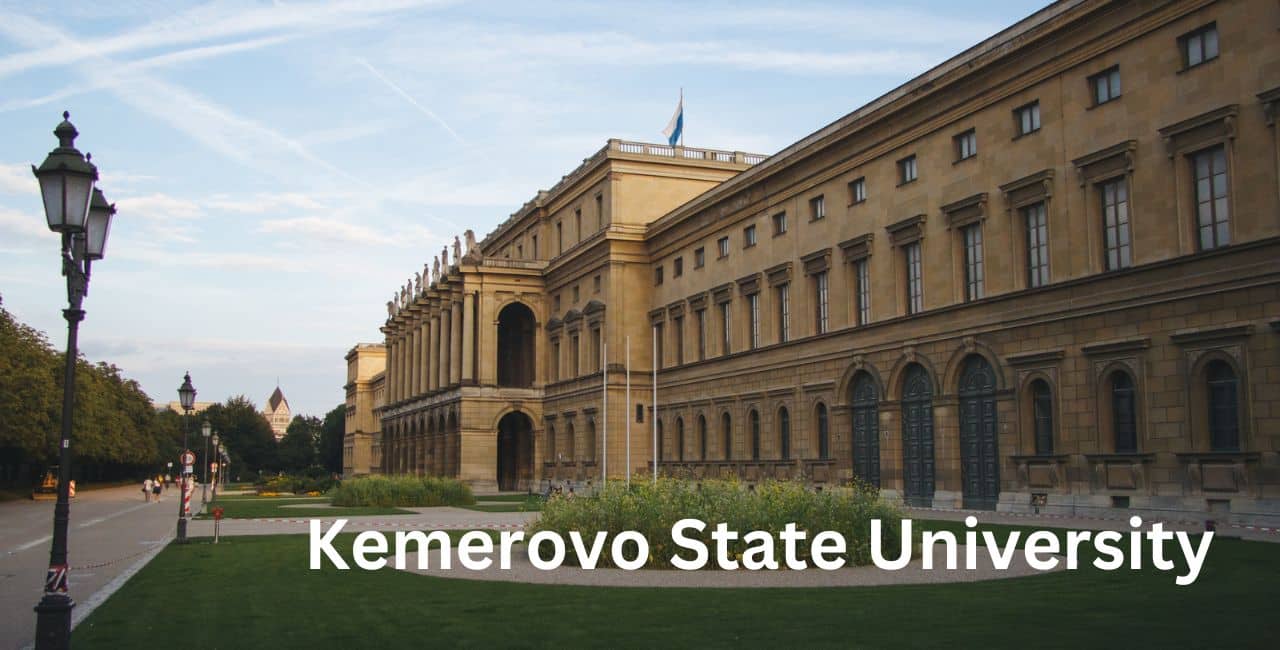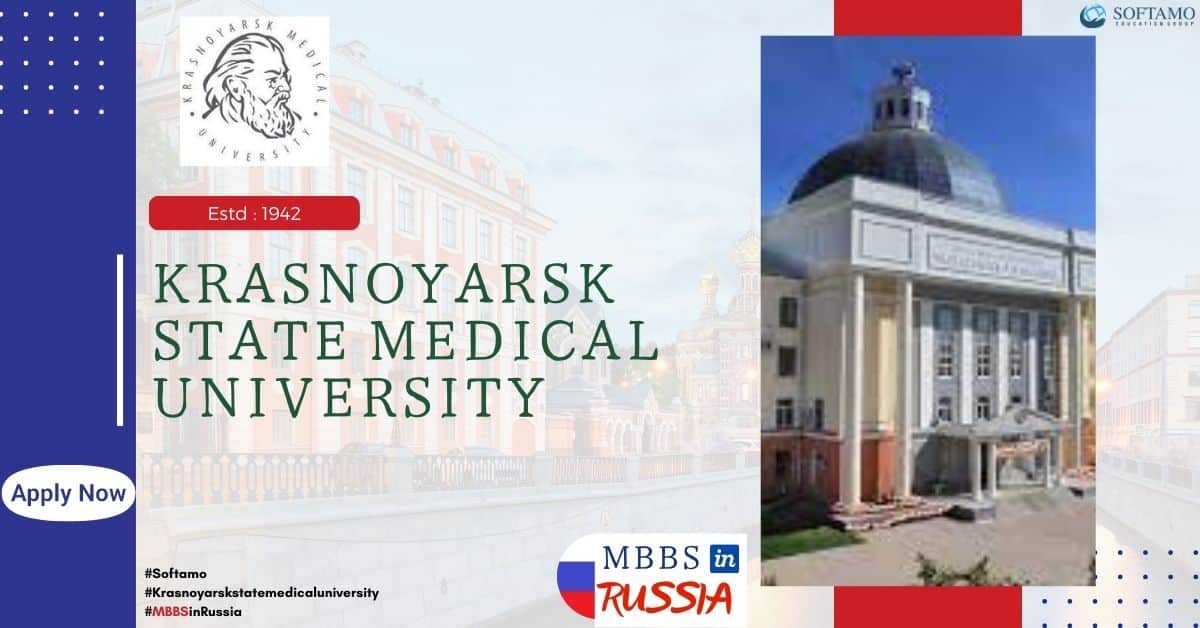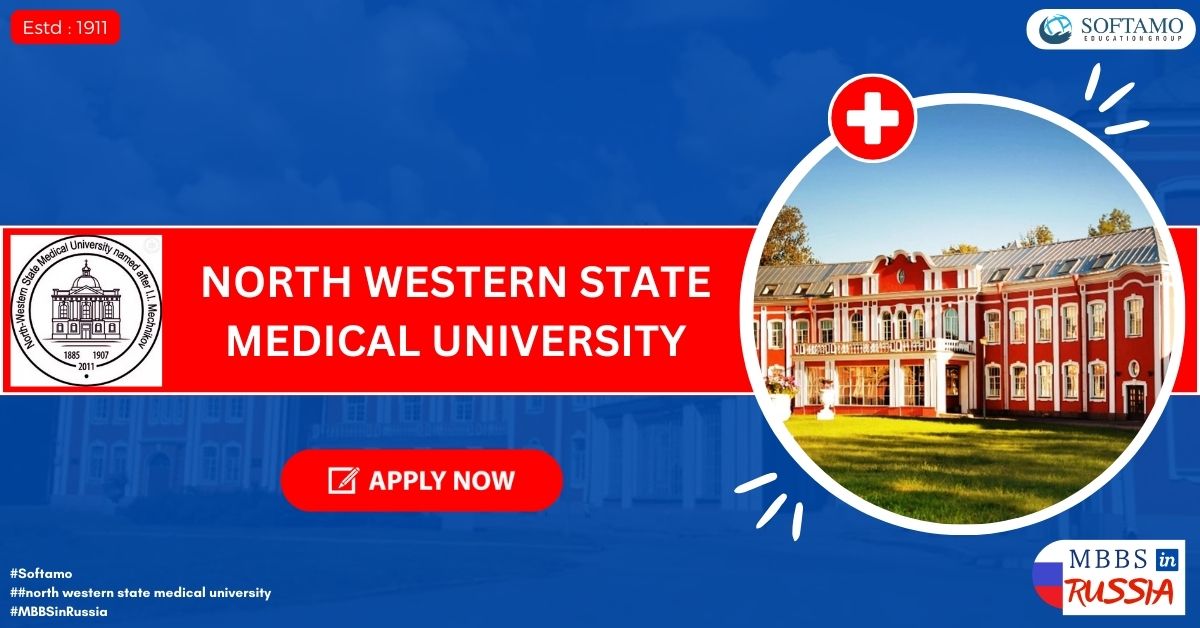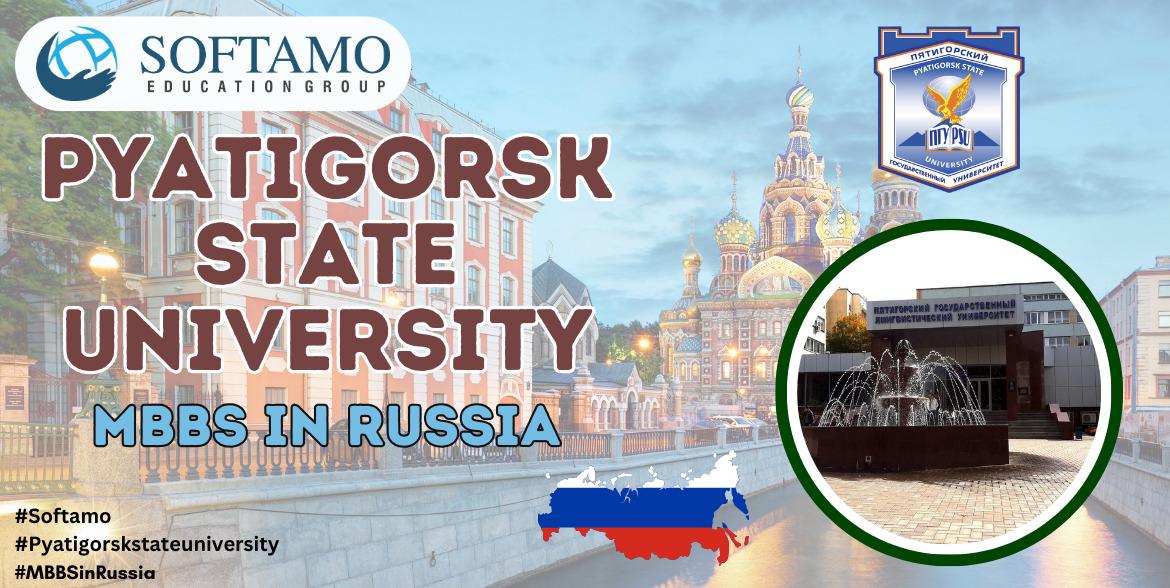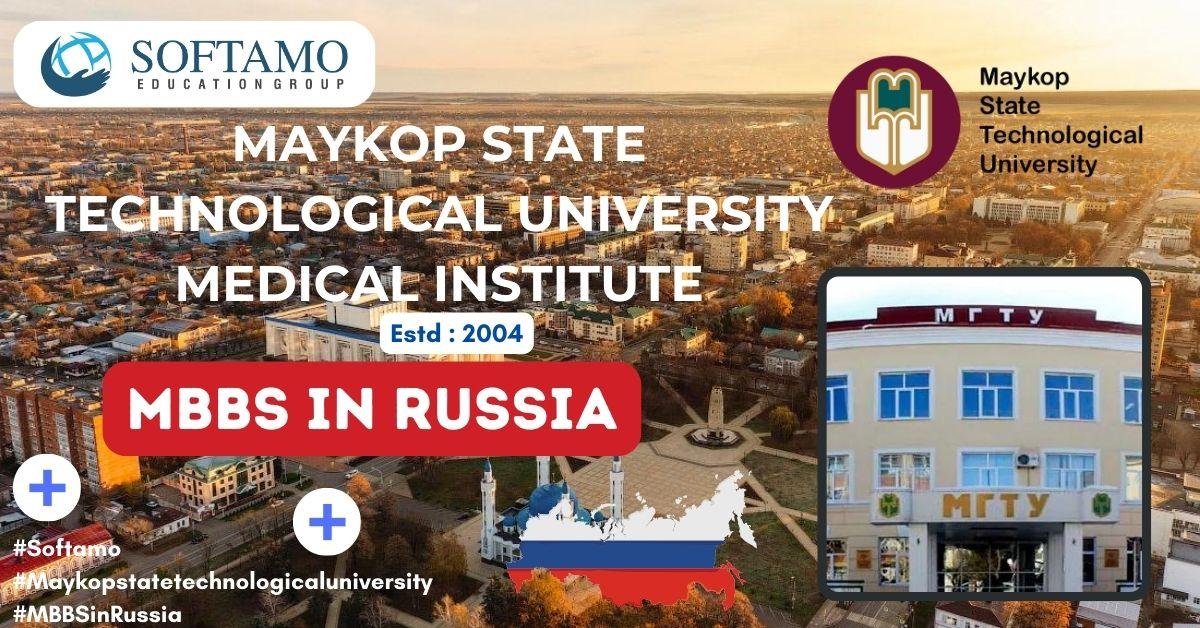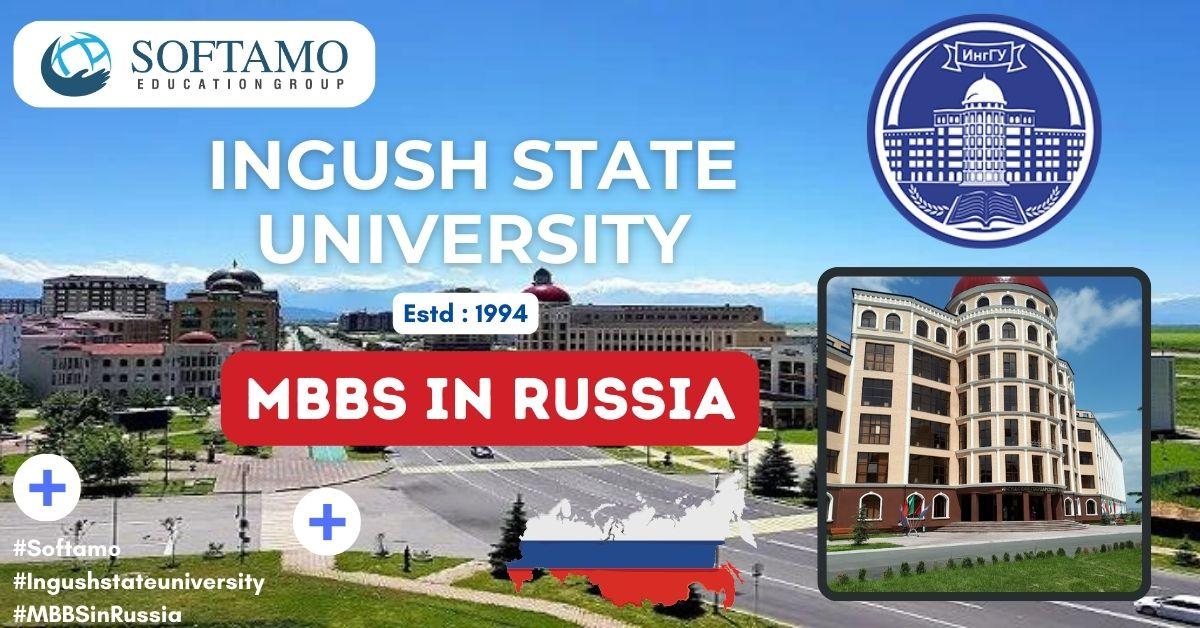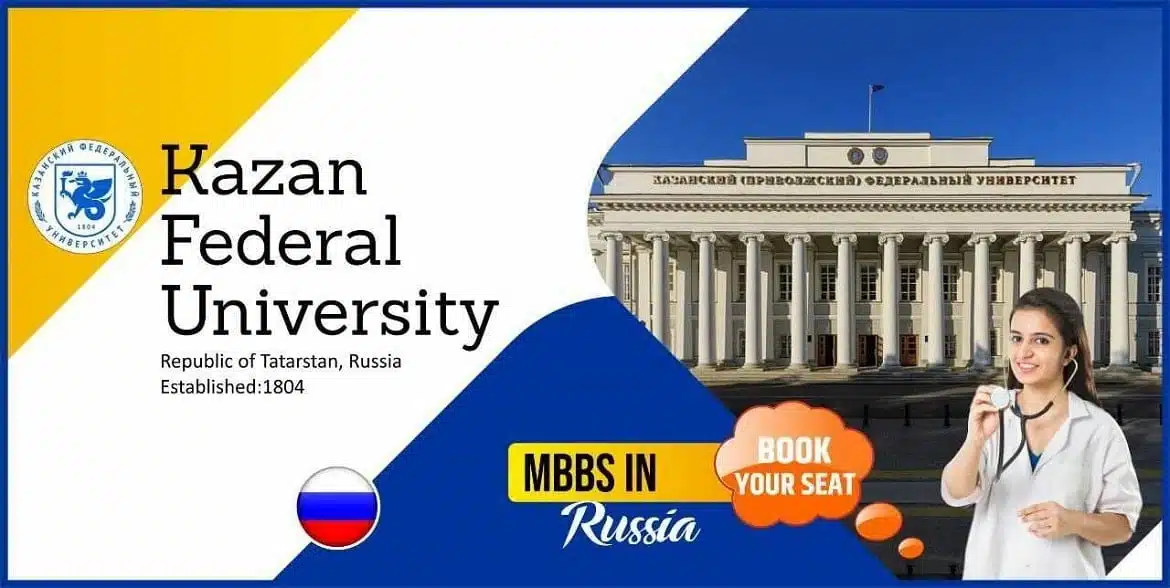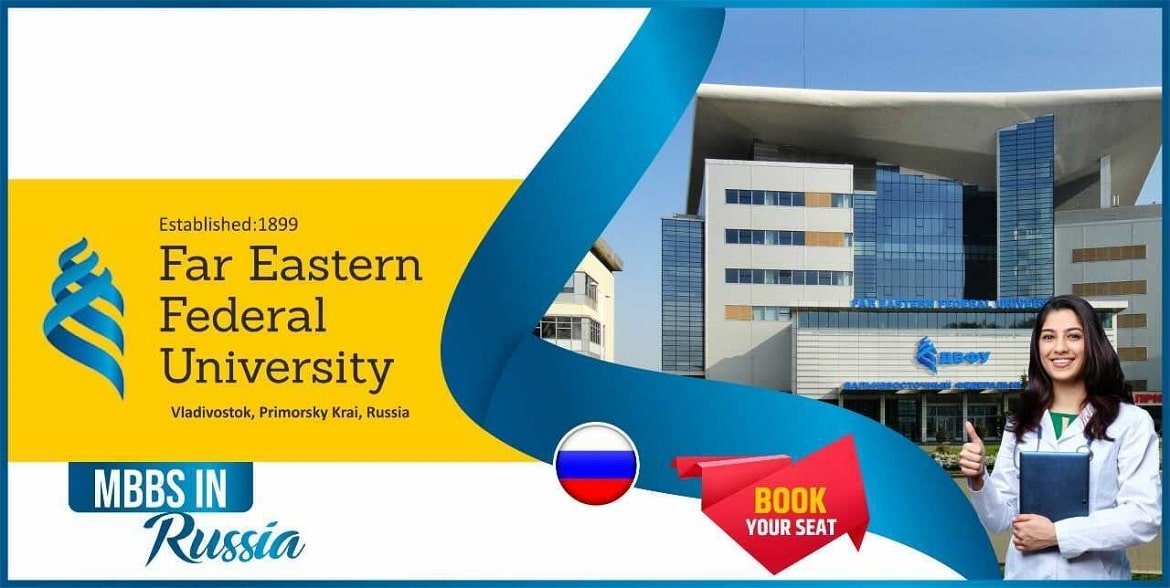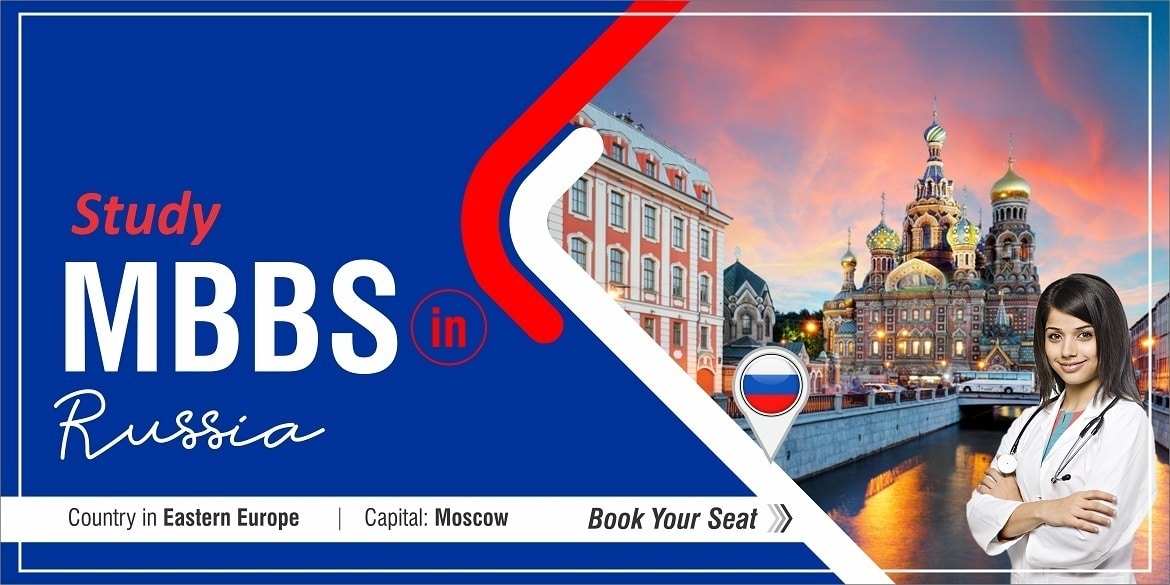
Introduction To MBBS IN Russia
MBBS in Russia is a great option for students who are looking for a top-notch medical education at an affordable cost. With a low cost of living, students can save money while pursuing their studies and invest in their future. In Russia, students can expect to receive a world-class education from highly proficient faculties, who bring with them a wealth of knowledge and experience.
The cost of living in Russia is much lower compared to other developed countries, making it an ideal destination for students who are seeking a quality education at a reasonable cost. This includes the cost of accommodation, food, transportation, and other living expenses. Moreover, students can expect to receive a high standard of living, with modern amenities and a safe environment to study and live in.
Russia is known for its highly trained and experienced faculty, who bring with them a wealth of knowledge and expertise. Students will have access to the latest medical equipment and technology, as well as opportunities to gain hands-on experience through clinical rotations and internships. With the availability of excellent facilities and a supportive learning environment, students can achieve their full potential and graduate with a comprehensive education.
Another advantage of MBBS in Russia is the cultural aspects that are common with India. India and Russia have a long-standing relationship, and there is a large community of Indian students studying in Russia. This makes it easy for Indian students to adapt to the new environment and feel at home in Russia. Additionally, students will have the opportunity to interact with students from different parts of the world, exposing them to different cultures and building life-long relationships.
Quick Contact
MBBS in Russia is approved by the National Medical Commission (NMC) and the World Health Organization (WHO). This means that students who graduate from a Russian medical university are eligible to practice medicine in India and other countries. This makes MBBS in Russia a great investment in your future, as you can gain a world-class education that is recognized globally.
Russia is a popular destination for students who wish to study MBBS. Its excellent quality of life and well-being attracts students from all over the world. The course duration in Russia is 5.8 years and is considered the best option for those seeking to study abroad. The reason for its popularity is due to the affordable cost of high-quality education. Russian medical universities are recognized by prestigious organizations such as MCI, WHO, and UNESCO.
Graduates from Russia’s medical schools are highly sought after and work in clinical fields worldwide. This is why many students choose to study MBBS in Russia. The country’s universities are ranked among the top 30 in the world, making it a great opportunity for students to achieve their dreams of becoming specialists.
In addition to Russia, countries such as China, Nepal, Germany, the Philippines, Ukraine, Bangladesh, and Kyrgyzstan also offer affordable medical courses. However, international students in Russia are not required to undergo a one-year preparatory course, unlike in other countries.
Top Medical University in Russia
| Category | University Name | Estimated Cost (in Lacs) |
|---|---|---|
| Federal | Kazan Federal University | 35 – 38 |
| Federal | Far Eastern Federal University | 28 – 30 |
| Federal | Crimea Federal University | 28 – 30 |
| Federal | Immanuel Kant Baltic Federal University | 25 – 27 |
| State | Kursk State Medical University | 35 – 38 |
| State | Kazan State Medical University | 35 – 38 |
| State | Northern State Medical University | 34 – 36 |
| State | Orenburg State Medical University | 34 – 36 |
| State | Ryazan State Medical University | 30 – 32 |
| State | Volgograd State Medical University | 46 – 50 |
Additional In-depth Information on MBBS In Russia
More Relevant Information About MBBS In Russia
Studying MBBS in Russia is a hassle-free option for students as there is no requirement for entrance exams. Additionally, the Russian government offers subsidies for education, making the fees reasonably low. Students can access medical insurance and treatments as needed. MBBS courses are taught in both English and Russian, and students are also given Russian language classes for better communication with local patients. The medical universities in Russia have advanced teaching methods and are equipped with modern facilities to aid students’ growth.
The climate in Russia differs from India and is moderate in the torrid region. However, the climate varies across different geographical areas. During winter, the average temperature can drop to -20 degrees Celsius, whereas in fall and summer, it can rise to 25 degrees Celsius. To ensure comfort, every house in Russia is equipped with heating facilities.
Why Pursue MBBS in Russia in 2024-25?
Russia boasts some of the world’s leading medical universities, equipped with renowned hospitals and a highly recognized medical degree. These institutions offer affordable and advanced learning, quality education, furnished accommodation, Indian cuisine, and more. Additionally, many universities in Russia offer subsidized fee structures, making medical education accessible for students.
In Russia, students receive top-notch medical education and practical knowledge and have access to comfortable accommodations and quality food on campus. Each year, Russia welcomes over 200,000 foreign students from around the world to study at its top medical colleges, attracting even those who have opportunities to study in the US and the UK. This is due to Russia’s state-of-the-art infrastructure and expertise in medical research.
The demand for foreign education is at an all-time high, and students are increasingly looking for colleges that offer maximum ROI, global recognition, and an all-encompassing curriculum. Russia is a popular destination for MBBS students, thanks to its low cost of living and affordable MBBS fees, which average between 2.5 lakhs to 5 lakhs. Scholarships are also available for students. After completing their studies, graduates can practice medicine anywhere in the world.
There are several compelling reasons to consider pursuing an education in Russia, including:
Why MBBS In Russia for Indian Students ?
Choosing to study MBBS in Russia is a great option for Indian students, as admission does not require a language test or entrance exam. This opens the door to exploring Russia for those interested. With over 4000 students enrolled in 20 colleges, the cost of tuition is much lower compared to western countries and sponsorships are relatively high. The admission process is straightforward, as there is no need to take an exam or demonstrate language proficiency. The curriculum in Russia is similar to that in India, making it easy for students to continue their higher education back in India if they choose to do so.
MBBS in Russia is a 6-year degree program, growing in popularity as an alternative option for students who wish to become doctors but have not secured a place in a top Indian medical college. 53 Russian universities offer an MBBS degree that is approved by the Medical Council of India (MCI) and allows students to complete their medical education abroad and practice in India.
According to MCI rules, students who want to study MBBS abroad must qualify for the NEET exams of Russian colleges and have at least 50% aggregate in their CBSE/ISC 12th results (in PCB). Tuition fees in popular universities range from 193,000 to 874,000 Russian Rubles, equivalent to 1.8 lakhs to 8.5 lakhs a year in India. Graduates must pass the Foreign Medical Graduates Examination (FMGE) to legally practice in India. Currently, all classes are conducted online due to the COVID-19 pandemic, but students who go to Russia have the opportunity to work part-time.
MD in Russia is equivalent to MBBS in India, with just a difference in terminology. The Medical Council of India recognizes MD in Russia as a bachelor’s degree program. After completing MBBS in Russia, students will receive a license to practice in India. To become a practitioner, a bachelor’s degree in nursing from a Russian university is required, followed by a 5.8-year specialist degree. Specialization is then followed by a 2 to 4-year residency program.
Advantages of Studying MBBS In Russia for Indian Students 2024 - 2025
Studying MBBS in Russia is a smart choice for many aspiring medical students. There are several advantages to this, including the lack of an entrance exam and donation, an affordable fee structure, and a high level of recognition and acceptance worldwide. In addition, the cost of living in Russia is economical, making it a more affordable option than studying in many other countries.
The admission procedure for MBBS in Russia is also simple, with many universities requiring just basic documentation. The fee for studying MBBS in Russia is very low and subsidized, making it affordable for most students. On average, the fee for a year of MBBS studies in Russia is between 4-8 lakhs. This, combined with the low cost of living, makes Russia a great option for students who are looking to study MBBS without breaking the bank.
The MBBS degree obtained from Russia has worldwide recognition and is recognized by the Medical Council of India (MCI). In addition, the students who study MBBS in Russia are trained for the MCI Screening Test and have the opportunity to practice in India at no additional cost. There are many references available of students who have studied MBBS in Russia and are now working in hospitals across the world, which is a testament to the high quality of education and training offered in Russia.
Another advantage of studying MBBS in Russia is the 100% guarantee for a visa. The universities that offer MBBS in Russia are government universities, which means that students can feel confident in their ability to obtain a visa to study in Russia. Additionally, students who choose to study MBBS in Russia have the opportunity to obtain a dual diploma through the joint program with other universities in foreign countries.
Russia is also a great place for international students to adapt. With over 100 different languages spoken in Russia, students who choose to study MBBS in Russia will find themselves in a diverse and multicultural environment. This will not only help them to become more well-rounded individuals, but it will also prepare them for working in a global environment in the future.
The course in Russia is advanced and comfortable, with many universities offering students access to modern equipment, scientific centers, and high-quality study facilities. The accommodation provided by Russian universities is also very low-cost, making it easier for students to focus on their studies without worrying about their financial situation.
Finally, Russia has a top-notch infrastructure, with universities providing students with modern equipment and top-notch facilities. In addition, Russia offers scholarship opportunities to students from abroad who wish to study MBBS, making it a great option for students who are looking for affordable and high-quality education.
In conclusion, studying MBBS in Russia is a great option for aspiring medical students. With an affordable fee structure, worldwide recognition, and top-notch infrastructure, Russia offers a high-quality education for a fraction of the cost of studying in many other countries. Additionally, the multicultural environment in Russia makes it a great place for international students to adapt, and the opportunity for dual diplomas makes it a smart investment for the future.
Low Cost of Study for MBBS In Russia for Indian Students in 2024-25
Russia is a popular destination for students seeking quality education at an affordable price. MBBS in Russia is one such program that has gained immense popularity among Indian students. MBBS in Russia is a six-year undergraduate medical program that trains students in the field of medicine and prepares them for medical practice. The program is conducted in English, making it easy for Indian students to understand and learn.
The cost of studying MBBS in Russia for Indian students in 2024-25 is relatively low compared to other countries. The average cost of studying MBBS in Russia for six years is around 15-24 lakhs, which is significantly less than the cost of studying MBBS in countries like the USA, the UK, and Australia. The low cost of MBBS in Russia is one of the main reasons why Indian students are flocking to this country to pursue their medical education.
In addition to the low cost of studying MBBS in Russia, the country also offers several other benefits to Indian students. The quality of education in Russia is top-notch and is recognized globally. Russian universities have well-equipped laboratories, highly qualified faculty, and state-of-the-art facilities. MBBS students in Russia also get the opportunity to gain hands-on experience by working with patients in hospitals and clinics.
Another advantage of MBBS in Russia is that the eligibility criteria for Indian students are relatively low. Students who have passed 10+2 with physics, chemistry, and biology are eligible to apply for MBBS in Russia. This makes it easier for students from rural areas or from economically weaker sections of society to pursue their medical education.
Food and Accommodation Cost for MBBS In Russia for Indian students
Russia is one of the most popular destinations for Indian students who aspire to pursue MBBS. The country offers an excellent quality education at an affordable cost. Not only education, but the food and accommodation facilities in Russia are also affordable and comfortable. In this blog, we will be discussing the cost of food and accommodation for MBBS students in Russia.
The cost of food in Russia varies from city to city, and the average cost of food per month is around 10000 to 15000 rubles. This cost includes all three meals and snacks. The food in Russia is quite delicious and varied. There are a lot of options available for Indian students, including Indian food, Chinese food, Italian food, and so on. Students can also find affordable street food and fast food options.
Accommodation cost in Russia is also affordable. The cost of living in Russia is lower compared to other countries, and this includes the cost of accommodation. The cost of accommodation for students varies from city to city, but on average, it is around 8000 to 12000 rubles per month. Most of the universities in Russia provide hostel facilities for students, and these hostels are well-equipped and comfortable. The hostels are equipped with all necessary amenities, such as Wi-Fi, hot water, etc.
The Cost of Living for Indian MBBS Students in Russia During 2024-2025
The cost of living in Russia is relatively affordable compared to other countries. Daily expenses such as groceries and utilities are reasonable, even in major cities like Moscow. In non-metropolitan areas, the cost is even lower, with cheap food and transportation options. Staying in a hostel is recommended for students, as it covers the cost of food and eliminates the need for additional expenses. Additionally, students have the opportunity to earn extra money by working part-time.
Estimated Accommodation Cost: $150 to $200.
Food Expenses: $100 to $110.
Transportation Cost: $10 to $15.
Traveling Expenses during MBBS In Russia for Indian Students In 2024 - 2025
Studying in Russia can be a budget-friendly option for students who are looking to save money on transportation costs. With the availability of affordable public transportation, students can easily get around without breaking the bank. A monthly metro ticket will cost anywhere from 26-36 dollars, while single trip tickets for buses, trams, and trolleys cost only 17 rubles. This is significantly cheaper compared to higher education institutions in the US and the UK.
The vast distances in Russia are not a hindrance to students as they can choose from various forms of public transportation, such as regular buses and private taxis. The major cities of Russia also have express trains that operate from airport terminals, making it easier for students to travel from one place to another. With all these options available, students can enjoy exploring Russia without worrying about transportation costs.
Medical University in Russia under 40 Lakhs
| University Name | Tuition Fees (per year) | Hostel Fees (per year) |
|---|---|---|
| Kazan Federal University | 4,68,000 Rubles | 18,000 Rubles |
| Far Eastern Federal University | 3,90,000 Rubles | 40,000 Rubles |
| Kazan State Medical University | 4,16,000 Rubles | 18,000 – 60,000 Rubles |
| Kursk State Medical University | 5,500 USD | 700 USD |
| Northern State Medical University | 6,200 USD (included) | N/A |
| Orenburg State Medical University | 6,000 USD (included) | N/A |
| Mari State Medical University | 1st Year – 6,000 USD 2nd – 6th Year – 5,000 USD | (included) |
| Ulyanovsk State Medical University | 3,00,000 Rubles | 55,000 Rubles |
| Samara State Medical University | 3,80,000 Rubles | 55,000 Rubles |
| Voronezh State Medical University | 3,64,000 Rubles | 50,000 Rubles |
Medical University in Russia under 30 Lakhs
| University Name | Tuition Fee (Per Year) | Hostel Fee (Per Year) |
|---|---|---|
| Crimea Federal University | 3,00,000 Rubles | 15,000 – 60,000 Rubles |
| Altai State Medical University | 3,23,000 Rubles | 15,000 – 40,000 Rubles |
| Siberian State Medical University | 3,22,400 Rubles | 50,000 Rubles |
| Mordovia State Medical University | 3,40,000 Rubles | 30,000 – 50,000 Rubles |
| Samara State Medical University | 3,30,000 Rubles | 35,000 Rubles |
| North Ossetian State Medical Academy | 2,44,000 Rubles | 15,000 – 30,000 Rubles |
| Ural State University | 2,48,000 Rubles | 15,000 – 50,000 Rubles |
Medical University in Russia under 25 Lakhs
| University Name | Tuition Fee (Per Year) | Hostel Fee Range (Per Year) |
|---|---|---|
| Immanuel Kant Baltic Federal University | 2,40,900 Rubles | 15,000 – 25,000 Rubles |
| Ryazan State Medical University | 3,00,730 Rubles | 15,000 – 20,000 Rubles |
| National Research Lobachevsky State University | 2,80,000 Rubles | 15,000 – 45,000 Rubles |
| Petrozavodsk State University | 2,44,000 Rubles | 15,000 – 30,000 Rubles |
| Tver State Medical University | 2,62,700 Rubles | 12,000 – 20,000 Rubles |
| Rostov State Medical University | 2,94,600 Rubles | 16,000 – 20,000 Rubles |
| Chuvash State University | 1,92,655 Rubles | 15,000 – 40,000 Rubles |
Medical University in Russia under 20 Lakhs
| Medical University | Tuition Fee | Hostel Charges |
|---|---|---|
| Kabardino Balkarian State Medical University | 1,84,000 Rubles per year | 13,000 – 20,000 Rubles per year |
| Ingush State Medical University | 1,90,000 Rubles per year | 15,000 – 20,000 Rubles per year |
| Omsk State Medical University | 2,08,000 Rubles per year | 40,000 Rubles per year |
| Kemerovo State Medical University | 2,35,000 Rubles per year | 30,000 Rubles per year |
| South Ural State Medical University | 2,38,000 Rubles per year | 18,000 – 20,000 Rubles per year |
| Orel State Medical University | 2,40,000 Rubles per year | 14,000 – 20,000 Rubles per year |
Complete Admission Procedure For Russia MBBS Colleges for Indian Students In 2024 - 2025
The process of getting admission to an MBBS program in Russia is straightforward. Unlike in India, Russian medical colleges do not require students to take an entrance exam. Instead, admissions are based on the marks obtained in the Higher Secondary Certificate Examination. However, some Russian universities might conduct an assessment test to evaluate the student’s profile and qualifications. To be eligible, candidates must fulfill the admission requirements of the Russian medical university they are applying to and be NEET-UG eligible according to the National Medical Commission of India.
The admission procedure in MBBS in Russia consists of three steps: filling out the online form on the college’s official website, paying an introductory documentation fee, and submitting scanned copies of 10th and 12th certificates, school endorsement, and other documents via email.
Once the online form is submitted, students and parents can seek counseling from representatives or offices for free information about medical universities in Russia, the admission process, fee structure, eligibility criteria, and facilitation fees charged by education consultants.
After 3 to 15 working days, the student will receive a confirmation letter. Then, the medical college will send a greeting letter, and the greeting process will commence. The confirmation letter is issued by the Medical colleges in Russia.
Finally, the student will have to pay the remaining fee, and they will have an advisor until classes start. Students can also take direct admission to Russian universities through Softamo Education Group, one of India’s oldest consultancies.
Documents Required for MBBS In Russia for Indian Students In 2024 – 2025
Studying MBBS in Russia can be an excellent opportunity for aspiring medical students. In order to enroll in a Russian university, students must ensure they have all the necessary documents. The first step is to fill out an admission form and provide a scanned copy of your Class 12th and 10th Pass Certificates. In addition, you need to provide six passport-sized colored photographs with a white background (4.5 cm /3.5 cm) and a scanned copy of your passport (first and last page). If your passport is not yet ready, you must provide ID proof, such as an Aadhaar card, PAN card, or Driving License.
Russian universities are renowned for providing excellent services to international students and the enrollment process is straightforward. Furthermore, studying MBBS in Russia can be an economical option, allowing students to save a minimum amount of money while pursuing their medical education. By preparing all the required documents, students can easily apply to a Russian university and begin their journey toward becoming a doctor.
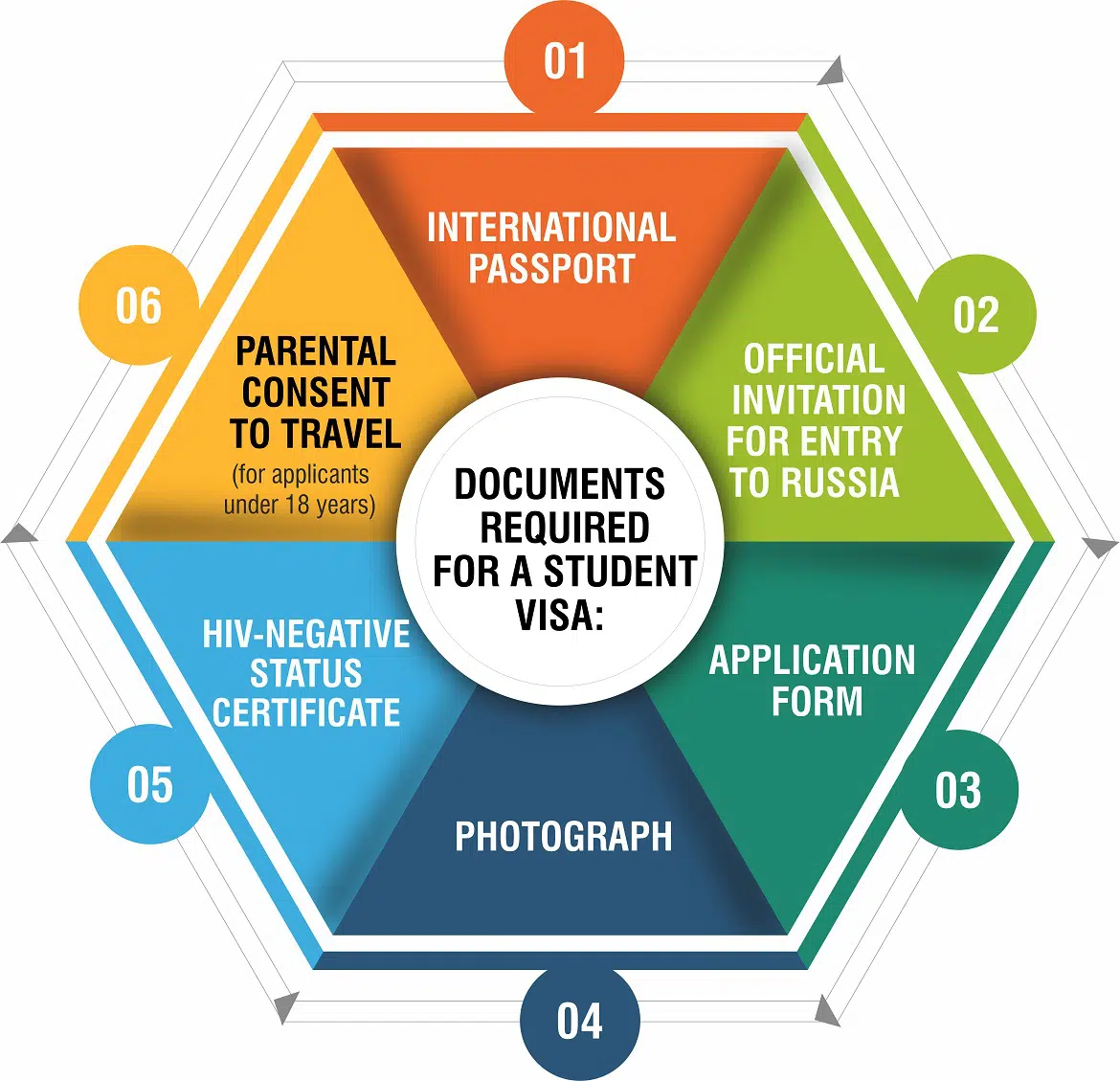
Eligibility Requirements for Pursuing MBBS in Russia
In order to be eligible for pursuing MBBS in Russia, students must meet certain criteria. This includes age, educational qualifications, and medical exam requirements.
Scholarships for MBBS In Russia for Indian Students In 2024 - 2025
There is great news for students aspiring to study MBBS in Russia. The government of the Russian Federation and other organizations are offering scholarships to help students with their financial burdens. This is a unique opportunity for students who are eager to study medicine in Russia.
One of the scholarships available is the Government of Russian Federation Scholarship. This scholarship is state-level and covers tuition fees, accommodation costs, and maintenance allowance. This means students won’t have to worry about the costs.
Another scholarship is the Benjamin A. Gilman Scholarship, which is available for students who are interested in studying a foreign language like Russian. Medical colleges in Russia offer educational grants for international students who want to pursue medical courses. All students who have good grades in academics can apply for the scholarship, which will cover the cost of the course.
The School of Russian and Asian Studies (SRAS) is available specifically for US candidates. Many educational institutions that offer medical courses in Russia provide scholarships for international students. Students can also apply for non-governmental Russian scholarships or university-specific scholarships. Studying in Russia is easy and affordable, with low fees due to government subsidies. Furthermore, international students can take direct admission without having to appear for an entrance exam.
NMC Recognized Top MBBS University In Russia for Indian Students
Russia is a popular destination for students who wish to study medicine due to its affordable structure and quality of education. There are several universities in Russia that offer MBBS (Bachelor of Medicine and Bachelor of Surgery) programs. These universities are recognized by the National Medical Commission (NMC) and are known for producing some of the best medical professionals in the country. Here are the top NMC-recognized MBBS universities in Russia:
MBBS In Russia Syllabus
The MBBS curriculum in Russia is structured to provide students with a comprehensive education in the medical field. During the first year, students will learn the fundamentals of medicine, including subjects such as Biology, Physics, Chemistry, Nursing (surgery and therapy), Anatomy, Histology, Latin, and Public Health. In addition to these core subjects, students will also study History, Economics, Philosophy, Culturology, the Russian language, Physical Training, and the Basics of Research and Mathematics.
The second year focuses on the functioning of the human body and the metabolic processes, covering subjects such as Physiology, Biochemistry, Immunology, and Hygiene. Students will also learn about Psychology, Medical Law, Bioethics, and the Russian language for doctor-patient communication. After obtaining the degree, students must work as a nurse in a hospital for at least two weeks.
The third year of the MBBS program focuses on the etiology of diseases and the action of drugs, including subjects such as Microbiology, Pathology, Pharmacology, Radiology, Internal medicine, Topographical anatomy, and Operative surgery.
In the fourth year, students will start their hospital cycles, undergoing training in various departments of the hospital as part of their course. The practical class is divided into two parts, with the first half comprising discussion and the second half involving hands-on practice in the patient ward of the department. During this year, students will learn about departments such as Surgery, Dermatology and Venereology, Obstetrics and Gynecology, Neurology, Therapy, Medical Rehabilitation, Urology, Public health, Pediatrics, Phthisiology, and Endocrinology.
The fifth year of the MBBS program covers a wide range of specialties, including E.N.T., Ophthalmology, Surgical Gynecology, Psychiatry, Traumatology, Orthopedics, Physiotherapy, Outpatient therapy, Gene therapy, and Infectious diseases.
Finally, in the last year of the MBBS program, students will learn about Oncology and radiation therapy, Occupational diseases, Anesthesiology, Intensive care training, Dentistry, Clinical Immunology, General medical practice, Neurosurgery, Forensic medicine, and Epidemiology. With this comprehensive education, students will be well-prepared to enter the medical field and provide quality care to patients.

